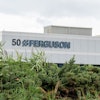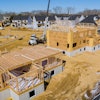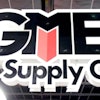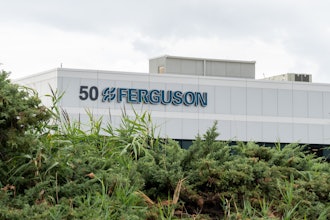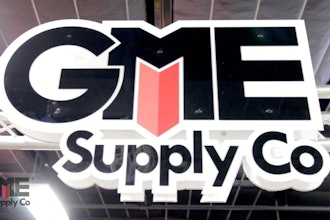WASHINGTON (AP) — The Federal Reserve expressed more confidence in the U.S. economy even as Japan's nuclear crisis raised worries around the globe.
The Fed said the economic recovery is on "firmer footing" and the jobs market is "improving gradually," in a statement released after its meeting Tuesday.
That's a more upbeat tone from its previous meeting on Jan. 26. After that meeting, Fed policymakers said the rate of economic activity was "insufficient" to bring about "significant improvement" in the job market.
The Fed on Tuesday, in a unanimous decision, said it was maintaining the pace of its $600 billion Treasury bond-purchase program to help the economy grow more strongly and to lower unemployment, which now stands at 8.9 percent.
The Fed made no mention of Japan's crisis, which caused stocks to plunge earlier in the day. But the Fed's stimulative policy would help the U.S. economy withstand widening economic risks from home and abroad.
A more positive outlook from the Fed helped Wall Street recover some of its losses from earlier in the day. The Dow Jones industrial average was down only 103 points, or 0.9 percent, in late-afternoon trading. That's after being down nearly 180 points before the statement was released, and falling by as much as 297 points in morning trading.
The bond-purchase program, which is slated to end in June, is intended to lower loan rates and boost stock prices. Those forces should spur Americans to spend more and companies to hire more.
The Fed also downplayed inflation risks. It said higher prices for energy and other commodities are increasing inflation, but predicted that the pickup in prices will be "transitory." That's consistent with the assessment Fed Chairman Ben Bernanke gave to Congress earlier this month. The Fed said it will keep close tabs on inflation trends.
On another encouraging note: the Fed no longer characterized progress on bringing down high unemployment as "disappointingly slow." The unemployment rate has fallen nearly a full percentage point in just three months — the sharpest drop since 1983.
Despite the Fed's more optimistic outlook, the list of potential risks to the economy has grown since the Fed's last meeting.
Japan is the world's third-largest economy, so the earthquake and ensuing nuclear crisis there are certain to affect the global economy.
Oil price have spiked since January, rising as investors worry that unrest in the Middle East and Africa could hurt global supply. Oil prices have dipped in recent days and are now hovering around $97 a barrel. Still, gasoline prices have stayed high and now average $3.57 a gallon nationwide.
Investors also are concerned that Europe's debt crisis could linger.
For the United States, the threats have the potential to slow the U.S. economy, or stoke inflation. Or both.
Higher energy prices have some economists lowering their growth forecasts for the first three months of the year. They said high energy prices will slow consumer spending, which accounts for 70 percent of economic activity. JPMorgan Chase now predicts growth in the January-March quarter of just 2.5 percent, down from 3.5 percent.
The Fed, however, observed that consumers are increasing the amount they spend. And Fed dropped concerns made after previous meetings that high unemployment, hard to get loans and depressed home values could restrain the pace of consumer spending.
"This is a significant acknowledgment that the American consumer is back in action, providing additional support to the expansion," said economist Sal Guatieri at BMO Capital Markets.
Tax cuts are giving Americans more money to spend. Retail sales grew for the eighth straight month in February. Businesses are hiring more.
Looking ahead, economists predicted the Fed will spend the full $600 billion and won't extend the bond-buying program beyond its June end date.
However, economists aren't expecting the Fed to rush and start boosting interest rates any time soon.
The Fed on Tuesday maintained a pledge to hold its key rate at a record low near zero for an "extended period."
Many economists don't think the Fed will start raising rate until early next year. Others think it will be at the end of 2012.
The central bank's key rate has been at a record low since December 2008. An increase in that rate would boost lending rates charged to consumers. These include rates on certain credit cards, home equity loans and some adjustable-rate mortgages.
Bernanke, however, has said the economic recovery must be deeply rooted before the Fed moves to tighten credit.

